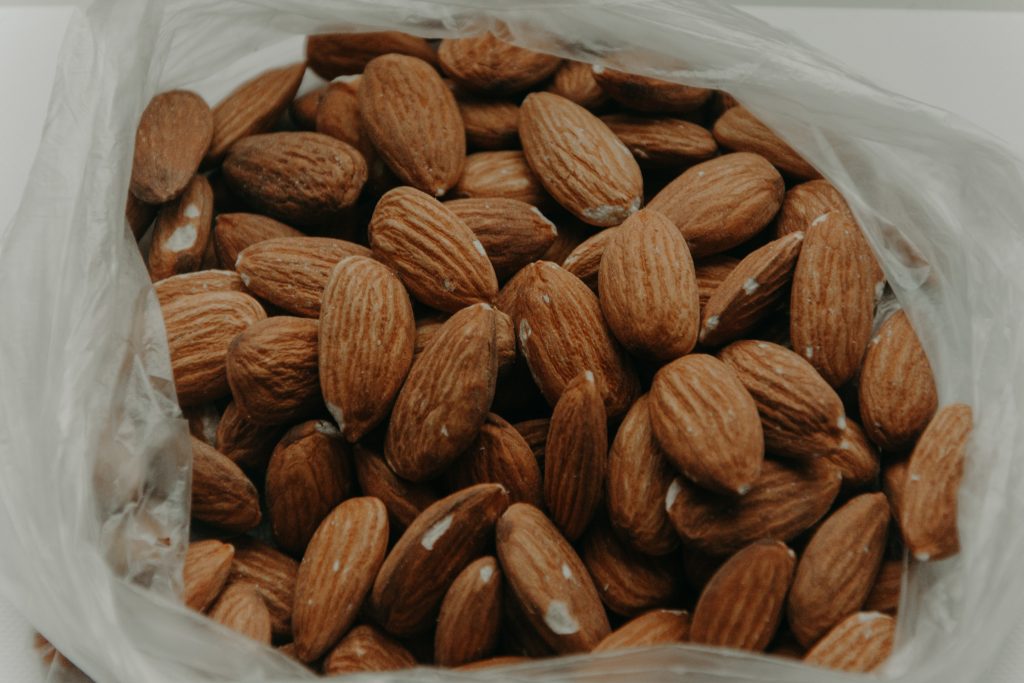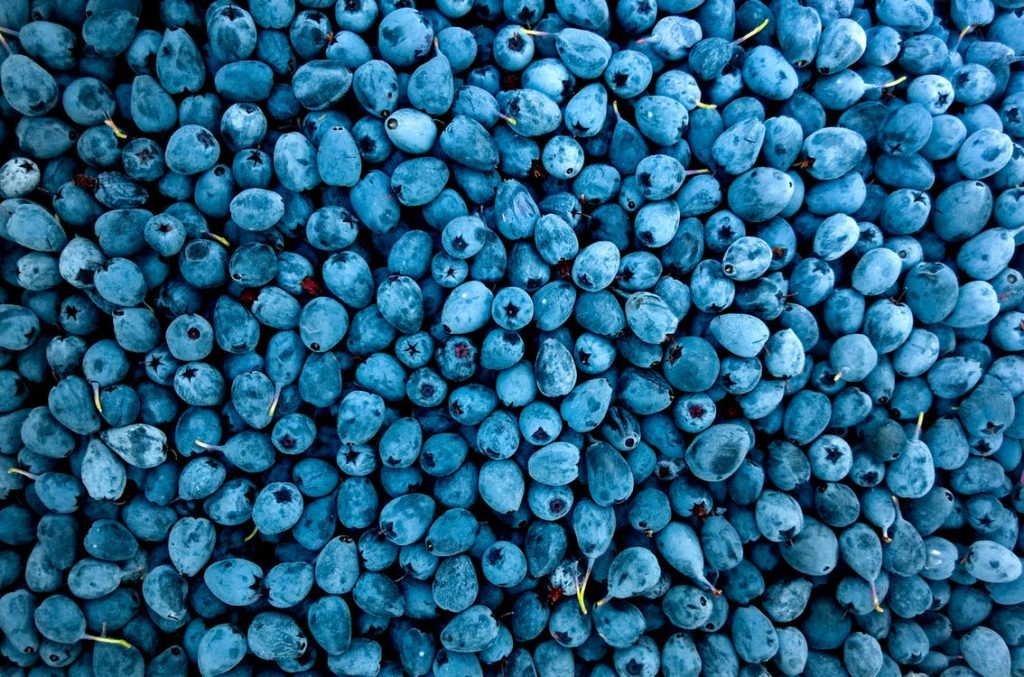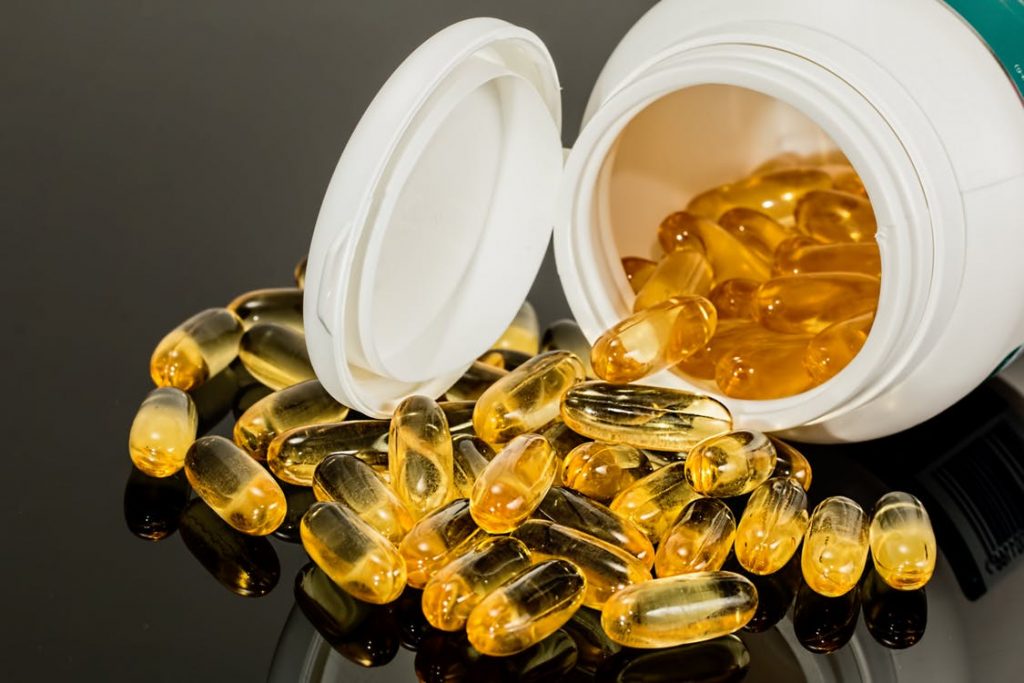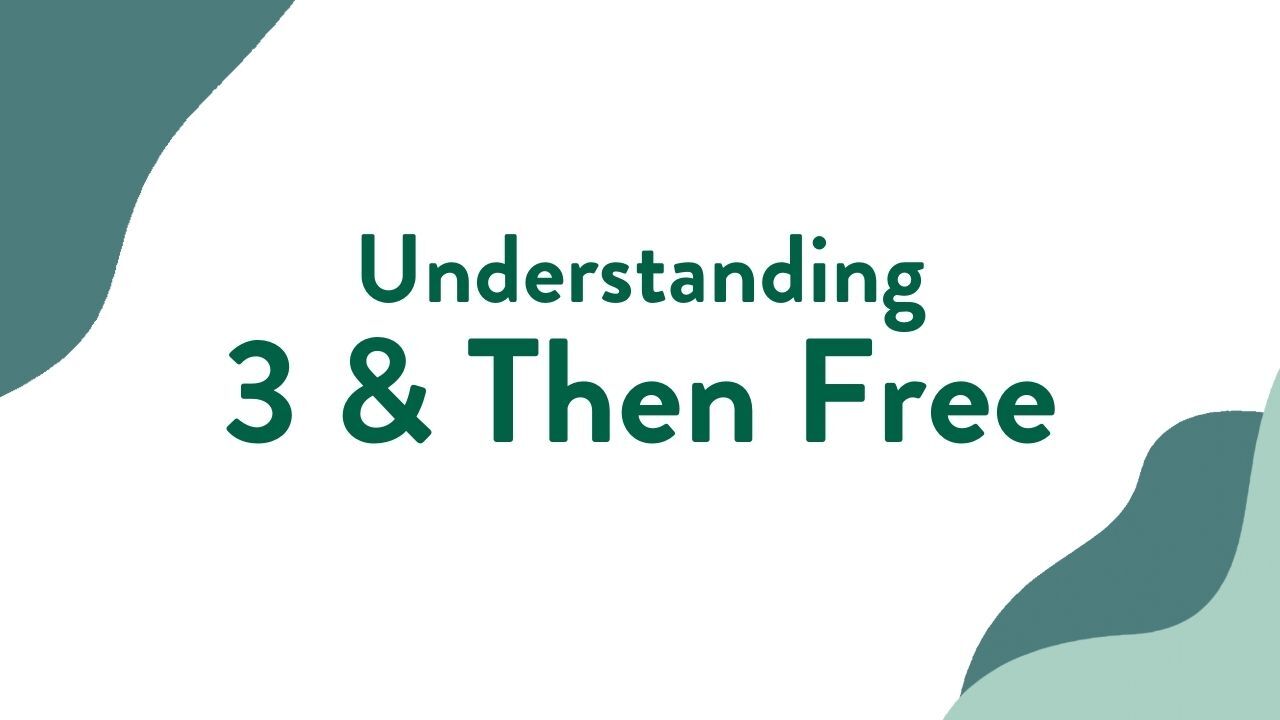Calories, fat-content, carbs…we talk about these things frequently. The perfect amount can help you feel good, but an unhealthy amount can leave you feeling gross.
But what’s something we hardly ever discuss? Hormones! Most of the time we only hear about them when talking about teenagers or pregnant women, but these body chemicals are actually important to everybody, regardless of sex or gender identity.
So, what are hormones exactly? And does the food you eat affect them? Well, let’s find out.
Hormones 101
What are they?
Think of hormones as little messengers in your body that help regulate different body functions. They zip and zap through your bloodstream to organs and other parts of your body when necessary.
What’s interesting about them is that they work slowly over time, affecting major body processes. Courtesy of the US National Library of Medicine, here are just a few process that hormones affect:
- growth and development
- metabolism
- mood
- reproduction
Your endocrine system create these chemicals, dispersing them through glands. The amount they produce is actually super important. Having too little or too much can affect the body negatively. Here are some major glands that regulate hormones:
- hypothalamus
- pancreas
- thyroid
- adrenals
- pineal
What are some important hormones?
So, just how many hormones exist in the body? There are around 50. Don’t worry, though! We’re listing a few important ones here, along with their major contributions to the body. As reported by the Hormone Health Network), here are a few important ones:
- Estrogen: the main sex hormone for women, which helps regulate puberty, the menstrual cycle and more.
- Testosterone: the main sex hormone for men, which helps regulate puberty, hair growth, muscle growth and more.
- Cortisol: one of the most important hormones, which helps the body respond to stress. Cortisol can help control the blood sugar levels, metabolism and even affect memory.
- Melatonin: helps regulate sleep and sleeping patterns, as well as preparing your body for rest.
- Serotonin: helps regulate mood, which also affects sleep, eating patterns and digestion.
- Adiponectin: helps burn fat and speed up metabolism.
Historically, hormones are thought to be uncontrollable. And there’s some truth in that, but you can do a lot more than you think. Eating right can help boost health hormone production. This is how nutrition comes into play.
Nutrition And Hormones
A balanced diet can help your body regular produce the necessary hormones. Sometimes supplements may help as well. Here’s our rundown.
What should you eat for balanced hormones?
Follow these nutritional tips to help balance your hormones.
Get enough protein
Protein is super essential for balanced hormones, most especially those that relate to hunger. (1) This is because protein can help produce hormones that help you feel full. The American Journal of Clinical Nutrition suggests getting about 20-30 grams of protein per meal. (2)
However, you want to be careful about the kind of protein you eat.
So, what foods can help you get the protein you need? Here’s a few of our favorite foods:
- almonds
- oats
- broccoli
- quinoa
- organic and free range eggs and poultry
- seafood and salmon that are wild-caught, and sustainably harvested
- protein powders, like our MVP Sport
Eat healthy fats
Yes, healthy fats exist. What are they exactly? Well, these fats are the type that help you feel full after eating, not the ones that leave you feeling bloated and nasty. Like protein, these can help your body produce hormones related to hunger. (3)
So, what are some healthy fats? Here’s some of our favorites:
- avocado (this is a great flex food!)
- dark chocolate
- salmon
- chia seeds (which is featured in our Power Shake)
- coconut oil
Sleep well
How did you sleep last night? Your answer can affect the hormones your body produces today. One study published in The Journal of Clinical Endocrinology & Metabolism suggests how long you sleep can affect the regulation of cortisol and other hormones. (4) This makes sense when your remember how cortisol is related to stress. We don’t know about you, but when we don’t get enough sleep, we’re often more stressed the next day.
Your quality of sleep is also important. Why? Well, because growth hormones are released during efficient sleep. (5) So, it’s best to sleep uninterrupted.
Nutrition can help you sleep better, which can aid hormone production. Here’s some of our favorite sleep-supporters:
- Tart cherries (the only ingredient in our Organic Apothe-Cherry)
- Tea, such as chamomile or passionflower (passionflower is a main ingredient in our Bio Relax capsules)
- kiwis (most likely due to their serotonin-content, the “happy” hormone) (6)
What should you avoid for balanced hormones?
Just as there are foods you will want to eat more, there are also some things you may want to avoid. Here’s a few notable mentions.
Manage stress as best you can
We mentioned earlier that cortisol is related to stress. If you experience chronic stress, your cortisol levels may elevate. This can lead to secondary issues, like eating more. (7) We know, we know: we’re making you stress about stress.
We’re not advocating to steer clear of stress, because that’s like saying to go outside but not look at the sky… it’s there and it’s not going anywhere! But, just try your best to manage in way that feels comfortable to you. This might include talking walks throughout the day or zoning out to one of your favorite Netflix obsessions.
As for what you eat, these foods and plants can help promote happy vibes and mood control:
- green leafy veggies (the main ingredients in our Green Spectrum)
- blueberries
- pumpkin and flax seeds (blend these in your fave Purium shake)
- dark chocolate
Avoid sugar like the plague
Okay, maybe we’re being dramatic, but you get the point. Do you best to limit your sugar-intake. Sugary drinks and other forms may spike your blood sugar levels, which can affect healthy hormone production. (8)
If you need a sweet treat now and then, don’t be afraid to indulge. Just don’t make it habit as sugars can affect digestion, sleep and more, which ultimately takes a toll on stress. Then, BOOM, cortisol increase!
Try opting for “smarter” sweets like blending cacao into your green smoothies. What’s our recommendation? Try Cocoa-Mint Spirulina.
Stay away from pesticides and harmful chemicals.
You may not find this tip on similar lists, but it’s still important to us. Emerging research suggests that pesticides used in farming and home gardens may have an affect on hormones. (9) This is because they negatively impact the endocrine system (which we know is responsible for releasing the body chemicals).
So, what are our tips for this? Go non-GMO and organic whenever possible! If you’re concerned about glyphosate and other pesticides damaging your gut health, we recommend our Biome Medic.
If you need help, don’t be afraid to supplement.
What supplements should you try?
Healthy nutrition that benefits your hormones can be hard to accomplish. That is why some people choose to supplement. Most supplements may help support the body’s response to symptoms rather than actual hormone imbalance. It’s always best to consult with your health practitioner.
Here are just a few of our favorite natural remedies to hormone woes:
- ginseng (the main ingredient in our White American Ginseng)
- black cohosh
- primrose oil
- maca (an ingredient in our MVP Sport)
- omega fatty acids (found naturally in spirulina products)
- bee pollen (the main ingredient in our Bee Energetic)
Healthy, Your Way
Health can be different for different people. Always remember to find a path that works best for you. Do you have any suggestions for hormone health? Let us know in the comments.
Cited Sources
- Wendy AM Blom, Anne Lluch, Annette Stafleu, Sophie Vinoy, Jens J Holst, Gertjan Schaafsma, Henk FJ Hendriks, Effect of a high-protein breakfast on the postprandial ghrelin response, The American Journal of Clinical Nutrition, Volume 83, Issue 2, February 2006, Pages 211–220, https://doi.org/10.1093/ajcn/83.2.211
- Layman, D. K., Anthony, T. G., Rasmussen, B. B., Adams, S. H., Lynch, C. J., Brinkworth, G. D., & Davis, T. A. (2015). Defining meal requirements for protein to optimize metabolic roles of amino acids. The American journal of clinical nutrition, 101(6), 1330S–1338S. doi:10.3945/ajcn.114.084053
- Mette J Mandøe, Katrine B Hansen, Bolette Hartmann, Jens F Rehfeld, Jens J Holst, Harald S Hansen, The 2-monoacylglycerol moiety of dietary fat appears to be responsible for the fat-induced release of GLP-1 in humans, The American Journal of Clinical Nutrition, Volume 102, Issue 3, September 2015, Pages 548–555, https://doi.org/10.3945/ajcn.115.106799
- Karine Spiegel, Rachel Leproult, Mireille L’Hermite-Balériaux, Georges Copinschi, Plamen D. Penev, Eve Van Cauter, Leptin Levels Are Dependent on Sleep Duration: Relationships with Sympathovagal Balance, Carbohydrate Regulation, Cortisol, and Thyrotropin, The Journal of Clinical Endocrinology & Metabolism, Volume 89, Issue 11, 1 November 2004, Pages 5762–5771, https://doi.org/10.1210/jc.2004-1003
- Takahashi, Y., Kipnis, D. M., & Daughaday, W. H. (1968). Growth hormone secretion during sleep. The Journal of clinical investigation, 47(9), 2079–2090. doi:10.1172/JCI105893
- Lin, H. H., Tsai, P. S., Fang, S. C., & Liu, J. F. (2011). Effect of kiwifruit consumption on sleep quality in adults with sleep problems. Asia Pacific journal of clinical nutrition, 20(2), 169-174.
- Elissa Epel, Rachel Lapidus, Bruce McEwen, Kelly Brownell,
Stress may add bite to appetite in women: a laboratory study of stress-induced cortisol and eating behavior,Psychoneuroendocrinology, Volume 26, Issue 1, 2001, Pages 37-49, https://doi.org/10.1016/S0306-4530(00)00035-4. - Stanhope, K. L., Schwarz, J. M., Keim, N. L., Griffen, S. C., Bremer, A. A., Graham, J. L., … Havel, P. J. (2009). Consuming fructose-sweetened, not glucose-sweetened, beverages increases visceral adiposity and lipids and decreases insulin sensitivity in overweight/obese humans. The Journal of clinical investigation, 119(5), 1322–1334. doi:10.1172/JCI37385
- Mnif, W., Hassine, A. I., Bouaziz, A., Bartegi, A., Thomas, O., & Roig, B. (2011). Effect of endocrine disruptor pesticides: a review. International journal of environmental research and public health, 8(6), 2265–2303. doi:10.3390/ijerph8062265








Is the level of maca in the MVP Sport safe for preadolescent or adoscent children?
Hi Michelle,
We offer a MVP Kids version without maca and a few other ingredients found in MVP Sport. The chocolate taste is adored by kids and parents alike.
Thanks for this article!
Don’t forget exercise for regulating hormones!
Hi Suzanne,
Absolutely! Great recommendation.
To me, better sleep and regular exercise is the best way to balance our hormones nutrition. I saw many people, their lifestyle wasn’t good, they didn’t sleep properly, even don’t do any exercise. And then they face some hormonal problem. Now they are under treatment. What do you think about my opinion?
It’s interesting to learn that how long you sleep can affect the regulation of hormones in your body. My wife is struggling with menopause and she was wondering how she could regulate her hormones better. I’ll be sure to tell her that she should try getting better sleep for her hormones.